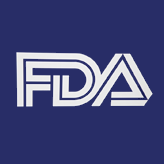FDA Approves Daratumumab Combinations for Previously Treated Myeloma
The FDA has approved daratumumab in combination with lenalidomide and dexamethasone or bortezomib and dexamethasone for patients with multiple myeloma who have received at least one prior therapy.
The FDA approved two daratumumab combinations

The US Food and Drug Administration (FDA) has approved daratumumab in combination with lenalidomide and dexamethasone or bortezomib and dexamethasone for patients with multiple myeloma who have received at least one prior therapy.
This approval was based on data from two clinical trials: the POLLUX trial and the CASTOR trial.
In the phase III POLLUX trial 569 patients with myeloma who had received one or more previous lines of therapy were randomly assigned to lenalidomide/dexamethasone with or without daratumumab. At a median follow-up of 13.5 months, patients assigned daratumumab had a 63% lower risk for disease progression or death compared with patients on lenalidomide/dexamethasone alone. The estimated median progression-free survival had not been reached in the daratumumab arm and was 18.4 months in the control arm (P < .0001). These results were published in the New England Journal of Medicine.
Results of the phase III CASTOR trial were presented at the 2016 American Society of Clinical Oncology Annual Meeting. In this study, 498 patients with myeloma who had been treated with one or more prior lines of therapy were randomly assigned to bortezomib plus dexamethasone with or without daratumumab. At a median follow-up of 7.4 months, patients assigned daratumumab had a 61% reduction in the risk for progression and a 70% reduced time to tumor progression compared with bortezomib/dexamethasone alone. The estimated median progression-free survival was not reached in the daratumumab arm and was 7.2 months in the control arm.
Daratumumab is also FDA-approved as a monotherapy for patients with myeloma who have had at least three prior lines of therapy, including a proteasome inhibitor and immunomodulatory agents, or patients who are double refractory to both.
The most frequently reported adverse reactions in POLLUX were infusion reactions, diarrhea, nausea, fatigue, pyrexia, upper respiratory tract infection, muscle spasm, cough, and dyspnea. The recommended dose of daratumumab is 16 mg/kg intravenously.
Navigating AE Management for Cellular Therapy Across Hematologic Cancers
A panel of clinical pharmacists discussed strategies for mitigating toxicities across different multiple myeloma, lymphoma, and leukemia populations.